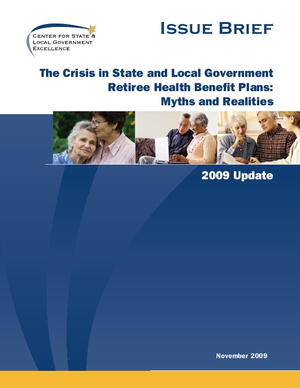
The Center for State and Local Government Excellence has updated its first issue brief on retiree health benefits, The Crisis in State and Local Government Retiree Health Benefit Plans: Myths and Realities. The brief, which was written by Robert L. Clark, professor of economics and management, innovation, and entrepreneurship in the College of Management, North Carolina State University, examines the current financial status of state retiree health plans.
States with the lowest unfunded liabilities include North Dakota, Wyoming, Iowa, Oregon, Rhode Island, and Oklahoma; states with the largest include New Jersey, New York, California, North Carolina, Connecticut, Louisiana, and Texas. The brief finds that:
- Although there are wide-spread reports of a major fiscal crisis, the reality is that some states face a fiscal crisis while others do not.
- There are substantial differences in the total liabilities of state retiree health plans, depending on the generosity of the plan and the size of the public sector.
- Retirement benefits are not protected by state laws or constitutions, and public sector employers will continue to amend their plans to reduce costs.
